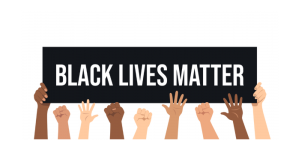Being Black in Corporate America
 A Personal Reflection from a Seasoned HR Consultant and Amen, she is Black.
A Personal Reflection from a Seasoned HR Consultant and Amen, she is Black.
By: Tiffini Holmes, HR Consultation
In the last few weeks, we have seen company after company come out with statements about celebrating diversity and standing against racism, pledge millions of dollars to support to social justice initiatives, etc. Perhaps, this is a good thing, but it made me shake my head. However, as a black woman, I could not get excited about it because I thought it took yet another black person unjustly dying at the hands of the police to finally indicate something might be wrong. Then, disappointment further set in because as a seasoned HR professional I have seen all too many times that those diversity statements carry very little value when you look at the company’s management and executive level roster.
“You have to be twice as good to get half as much.” I heard this platitude over and over growing up. Let me give you an example of how that plays out in the corporate world. I first became an HR Manager when I was 25-years-old. I was up for the position at 23-years-old, but the owner of the company felt I did not have enough experience. The manager I was replacing was a 24-year-old, white woman with no degree and no previous experience. I had a bachelor’s degree in management and 2 years of solid HR experience. Nevertheless, I went and got my MBA, with no tuition reimbursement. They finally, gave me the manager title, even though at that point I had been doing the job anyway, and my pay was still about $5k less than my predecessor. Another example came later in my career, I was a Senior Manager with international responsibilities. One of my direct reports (yes, she reported to me) was a white woman who made $10k+ more than me.
Being black in the workplace means sitting through meetings after a weekend. Just like the one when George Floyd was killed and listening to your white counterparts talk about their weekend without a care in the world while you quietly try to pull yourself together and put on a happy face to dole out motivation for the week because that is your job. It means when you make it to the management level yours will be one of the only faces of color you will see. It means tempering what you say so that passion isn’t misconstrued as an attitude. It means being sought after as the voice of all black people when something like this happens because you’re the only one (or one of a few) available.
I have started and stopped. Deleted and retyped sentences repeatedly. I am usually upbeat and can put a positive spin on most anything, but not this. I have been in the corporate world more than 20 years now and I have experienced covert and overt, conscious, or perhaps unconscious bias and racism multiple times. The corporate world has not been a safe space for black folks. So, I say if organizations are serious about living their diversity statements, they should consider the following:
- Be inclusive. If your managers and executive team don’t match the country’s demographics, it is lacking.
- Do the work. Acknowledge where implicit bias may exist and work to eradicate it in your organization.
- Make it a priority. This is a hot topic now. What will your organization do next when the hype is over?
- Stop with the microaggressions. Google is a great tool. Use it before asking a black woman anything about her hair, especially questioning if you can you touch it. Assume the answer is NO.
At HRBOOST®, we are experienced in Diversity training, Sensitivity Training and you can even watch my personal presentation in our Knowledge Center on Appreciation in Workplace. Take action and build on the opportunity to build conversation in your workplace. Aim to do something to take this forward. If I can ever be for support to you or even provide a free Discovery Consultation, reach out, I am happy to bridge the gap in understanding a black woman’s perspective.
